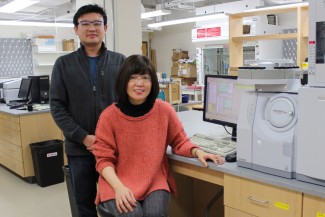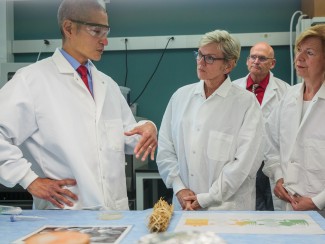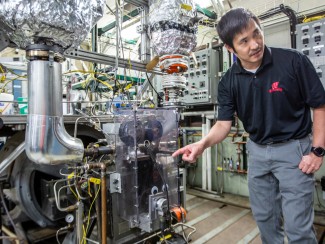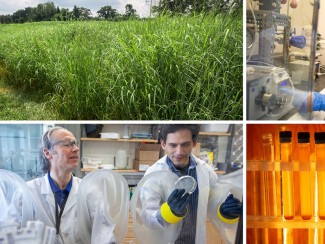
In a study published March 9 in Nature Chemistry, University of Wisconsin-Madison chemistry Professor Kyoung-Shin Choi presents a new approach to combine solar energy conversion and biomass conversion, two important research areas for renewable energy.
For decades, scientists have been working to harness the energy from sunlight to drive chemical reactions to form fuels such as hydrogen, which provide a way to store solar energy for future use. Toward this end, many researchers have been working to develop functional, efficient and economical methods to split water into hydrogen, a clean fuel, and oxygen using photoelectrochemical solar cells (PECs). Although splitting water using an electrochemical cell requires an electrical energy input, a PEC can harness solar energy to drive the water-splitting reaction. A PEC requires a significantly reduced electrical energy input or no electrical energy at all.




